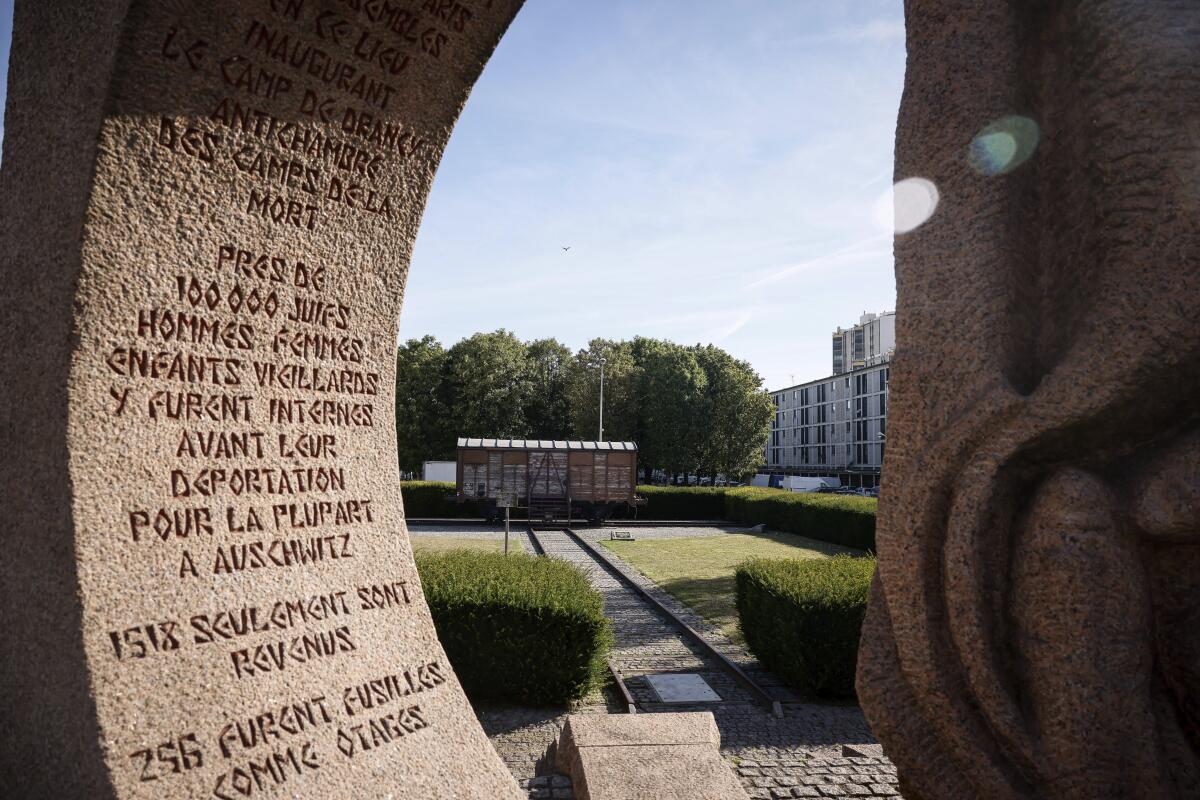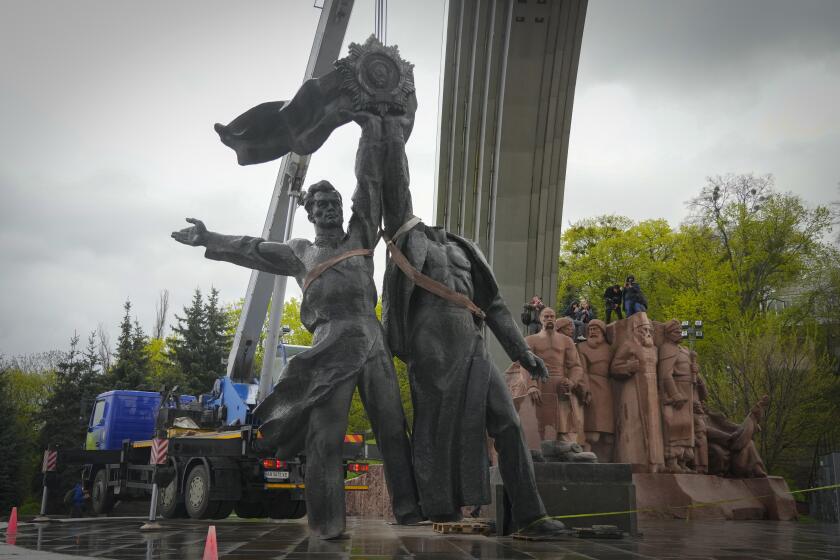Holocaust survivors mark 80 years since mass Paris roundup

PARIS — French President Emmanuel Macron decried his Nazi-collaborator predecessors and rising antisemitism, vigorously vowing to stamp out Holocaust denial as he paid homage Sunday to thousands of French children sent to death camps 80 years ago for one reason alone: because they were Jewish.
Family by family, house by house, French police rounded up 13,000 people on two terrifying days in July 1942, wresting children from their mothers’ arms and dispatching everyone to Nazi death camps. France honored those victims this weekend, as it tries to keep their memory alive.
For the dwindling number of survivors of France’s wartime crimes, a series of commemoration ceremonies Sunday were especially important. At a time of rising antisemitism and far-right discourse sugarcoating France’s role in the Holocaust, they worry that history’s lessons are being forgotten.
A week of ceremonies marking 80 years since the Vel d’Hiv police roundup on July 16-17, 1942, culminated Sunday with an event led by Macron, who pledged that wouldn’t happen ever again.
“We will continue to teach against ignorance. We will continue to cry out against indifference,” Macron said. “And we will fight, I promise you, at every dawn, because France’s story is written by a combat of resistance and justice that will never be extinguished.”
As war rages, streets bearing names of famous Russians strike a discordant note for Ukraine
He denounced former French leaders for their roles in the Holocaust and the Vel d’Hiv raids, among the most shameful acts undertaken by France during World War II.
Over those two days, police herded 13,152 people — including 4,115 children — into the Winter Velodrome of Paris, known as the Vel d’Hiv, before they were sent on to Nazi camps. It was the biggest such roundup in Western Europe. The children were separated from their families; very few survived.
In public testimonies over the last week, survivor Rachel Jedinak described a middle-of-the-night knock on the door, and being marched through the streets of Paris and herded into the velodrome in the shadow of the Eiffel Tower.
She recalled her desperate mother shouting at police. Some French neighbors informed on Jews, others wept as they watched them being corralled like livestock.
Chantal Blaszka’s aunts and uncle were among the children rounded up: 6-year-old Simon, 9-year-old Berthe, 15-year-old Suzanne. Their names are now engraved on a monument at a garden where the velodrome once stood, along with some 4,000 other children targeted in the raids. Photos of the children hang from tree trunks, the result of years of painstaking research to identify and honor the long-anonymous victims.
Of the children deported from the Vel d’Hiv 80 years ago, only six survived.
“Can you imagine?” Blaszka asked, pointing at the names and shaking her head. “Can you imagine?”
Serge Klarsfeld, a renowned Nazi hunter whose father was deported to Auschwitz, spoke Saturday in the garden, calling it an “earth-shaking testimony to the horrors lived by Jewish families.” Klarsfeld, 86, stressed the urgency of passing on memories as more of the war’s witnesses pass on.
On Sunday, Macron visited a site in Pithiviers south of Paris where police sent families after the Vel d’Hiv roundup, before sending them onto the Nazi camps. A new memorial site honoring the deportees was inaugurated, including a plaque that reads: “Let us never forget.”
The president urged vigilance: “We are not finished with antisemitism, and we must lucidly face that fact.”
“It is showing itself on the walls of our cities” when they are vandalized with swastikas, he continued. “It is infiltrating social networks ... it inserts itself into debates on some TV shows. It shows itself in the complacency of certain political forces. It is prospering also through a new form of historic revisionism, even negationism.”
Another ceremony was held at the Shoah Memorial in the Paris suburb of Drancy, home to a transit center that was central to French Jews’ deadly journey to Nazi camps. Most of the 76,000 Jews deported from France under the collaborationist Vichy government passed through the Drancy camp.
The Drancy Shoah memorial actively documents the Holocaust, especially for younger generations. This work is especially important at a time when Jewish communities are increasingly worried about rising antisemitism in Europe. France’s Interior Ministry has reported a rise in antisemitic acts in France over recent years, and said that while racist and anti-religious acts overall are increasing, Jews are disproportionately targeted.
Anxiety has worsened for some since the far-right National Rally party made a surprising electoral breakthrough last month, winning a record 89 seats in France’s National Assembly. Party co-founder Jean-Marie Le Pen has been convicted of racism and downplaying the Holocaust. His daughter Marine, who now leads the party, has distanced herself from her father’s positions, but the party’s past still raises concerns for many Jews.
During the campaign for this year’s French presidential election, far-right candidate and pundit Eric Zemmour propagated the false claim that Adolf Hitler’s Vichy collaborators safeguarded France’s Jews.
It took France’s leadership 50 years after World War II to officially acknowledge the state’s involvement in the Holocaust, when then-President Jacques Chirac apologized for the French authorities’ role in the Vel d’Hiv raids.
“The policy, from 1942 onward, was to organize the murder of the Jews of Europe and therefore to organize the deportation of the Jews of France,” said Jacques Fredj, director of the Paris Shoah Memorial. “Most of the time, the decisions were made by the Nazis ... but the management was French.”
Macron spelled it out clearly Sunday: “Let us repeat here with force, whether self-styled revisionist commentators like it or not.”
None of France’s Vichy wartime leaders, he said, “wanted to save Jews.”
More to Read
Sign up for Essential California
The most important California stories and recommendations in your inbox every morning.
You may occasionally receive promotional content from the Los Angeles Times.











